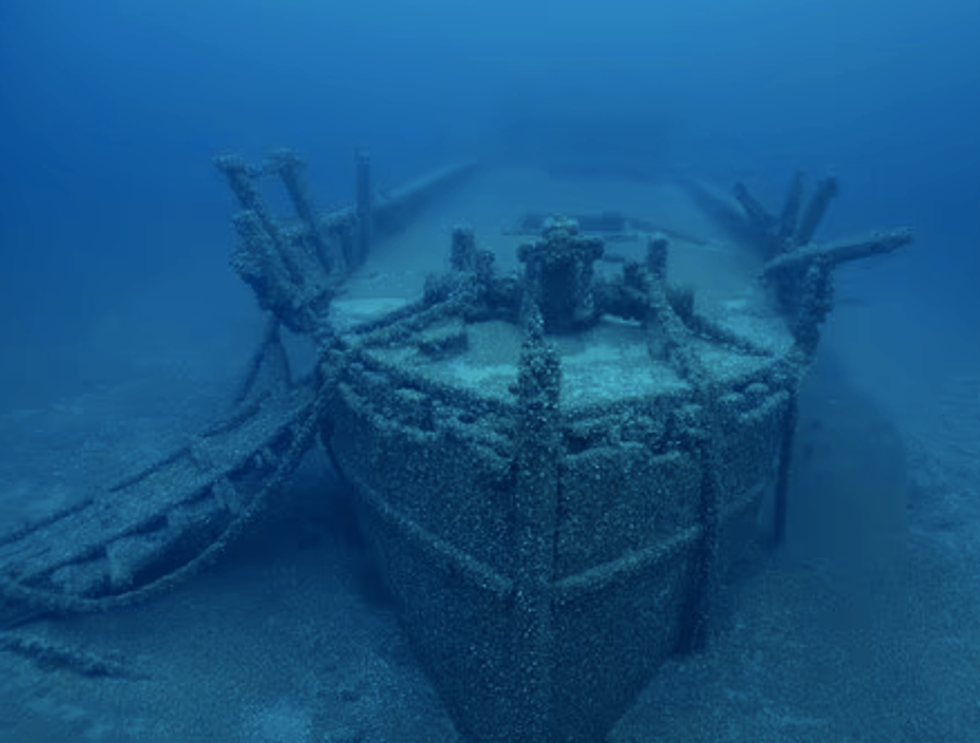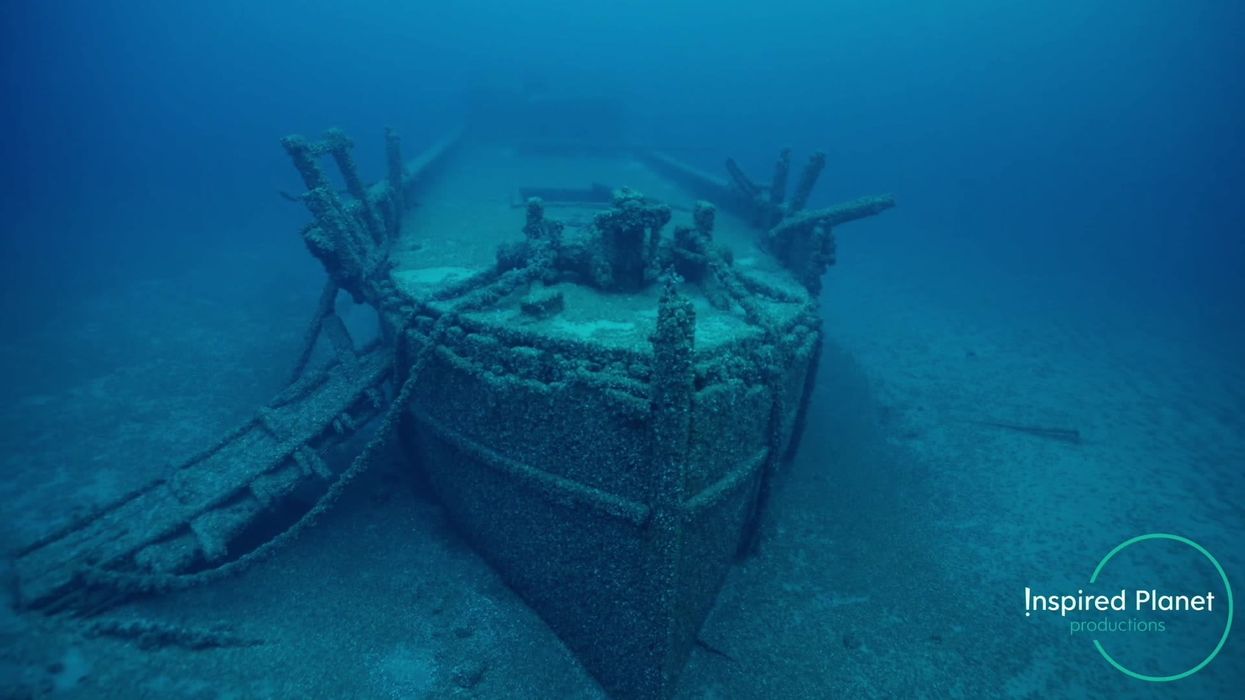Science & Tech
Harry Fletcher
Oct 21, 2023
Invasive mussels lead to discovery of 128-year-old shipwreck
Inspired Planet
A massive shipwreck which hasn’t been seen since it sank 128 years ago has been discovered by a crew making a nature documentary.
Filmmakers were working on a project about a mussel species which lives in the Great Lakes in the US when they made the unexpected find.
Yvonne Drebert and Zach Melnick were researching the invasive quagga mussel when they stumbled upon the steamship Africa, Fox Weather reports.
The ship was sunk in 1895 after travelling from Ohio to Ontario on Lake Huron in dangerous conditions.
The wreck was found after the filmmakers’ underwater drone detected something big and a camera was sent down to take a look.
“It got more and more definition as we got closer and closer, and all of a sudden, we could see, ‘Wow, this is a steamship, a wooden steamship!'” Melnik said.
“So this is old, and it is incredibly well intact.”

The discovery was made possible due to the mussel species, which had covered the wreckage.
The ship was identified as the Africa. Since the discovery, families of the people who were lost on board have been in touch with the filmmakers.
“One of the incredible things that’s happened since this story has come to light just a couple of weeks ago is that several of the descendants of family members who died on this wreck so many years ago have reached out to us,” Melnick said.
“We’re working with those families to try to find a way to remember those sailors who had died 128 years ago.”
The mussel species will eventually destroy the wreckage, and the quagga can be hugely damaging to natural environments.
The Center of Invasive Species Research in Riverside, California, reports that quagga [and zebra mussels] invasions “have had catastrophic impacts in the ecosystems in which they have established.”
“These organisms clog water intake structures (e.g., pipes and screens), which greatly increases maintenance costs for water treatment and power plants,” the organization adds on its website.
“Recreational activities on lakes and rivers are adversely affected as mussels accumulate on docks, buoys, boat hulls, anchors and beaches can become heavily encrusted.”
“Interestingly, invasions by quagga and zebra mussels have been documented as having some positive affects on receiving ecosystems. For example, filtration of water by mussels as they extract food removes particulate matter. This filtration has improved water clarity, and reduced the eutrophication of polluted lakes.”
Sign up for our free Indy100 weekly newsletter
Have your say in our news democracy. Click the upvote icon at the top of the page to help raise this article through the indy100 rankings
Top 100
The Conversation (0)














